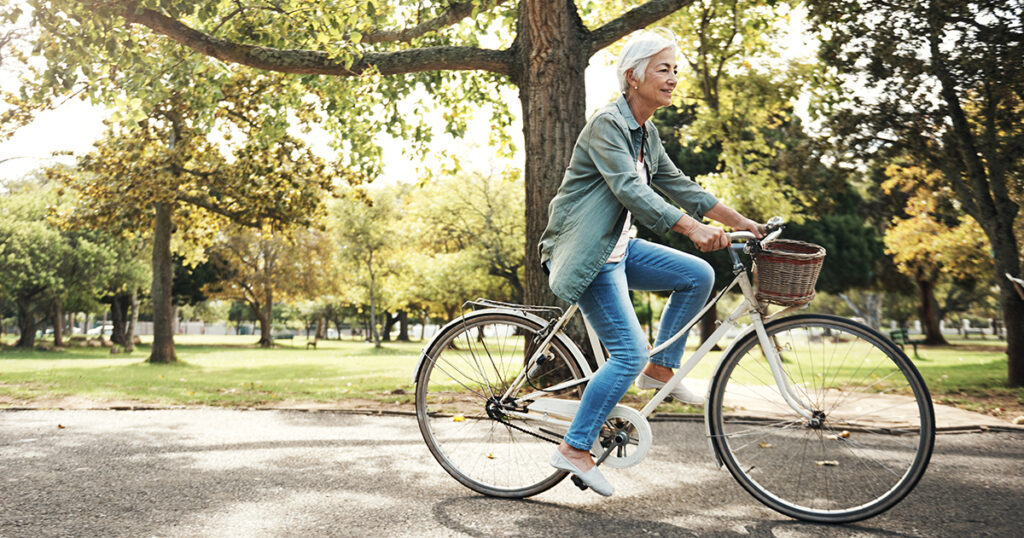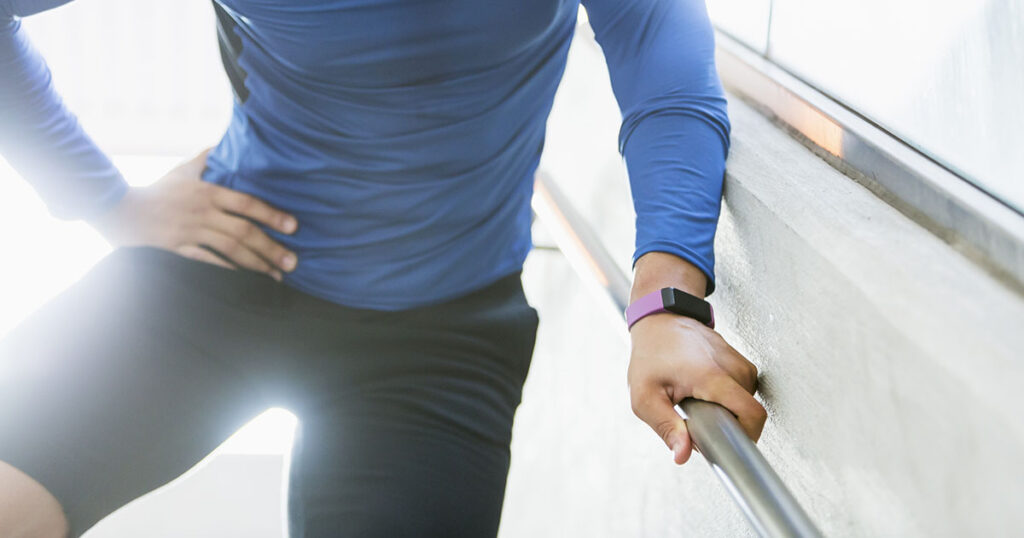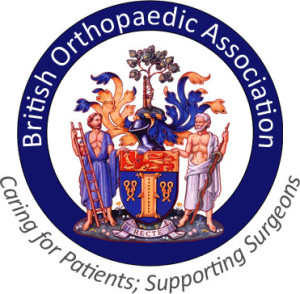Hip replacements have come on leaps and bounds in recent years, and new surgical techniques have resulted in a faster and more comfortable recovery for many patients.
To help you find out what to expect from your hip replacement recovery, Mr Nirav Shah answers some of the most frequently asked questions.
What can I expect immediately after my hip replacement?
You’ll be able to choose the type of anaesthetic that’s used during your hip replacement. Most patients opt for a spinal anaesthesia with sedation. This has fewer side effects than a general anaesthetic and you are unlikely to feel nauseous after your operation. Rest assured, it is very effective at controlling pain and you will be unaware of the procedure.
Following your hip replacement, you can expect significant relief from pain related to the condition you are seeking treatment for, but you will be in some discomfort from the operation itself. You may feel some pain around your wound and the soft tissues surrounding your hip. Some patients also experience varying degrees of swelling and bruising.
You will be prescribed pain killers to help you manage any discomfort and we’ll keep a close eye on your progress. Painkillers can cause constipation, so it’s important to eat lots of fibre during your recovery.
Just after your operation it’s important to move your ankles and toes, to minimise the risk of blood clots in your legs. You should also drink lots of fluids to help with kidney function and practice deep breathing exercises to reduce the risk of a chest infection
How long will I need to stay in bed for?
With the help and encouragement of our team most of our patients are standing and taking small steps on the day of their operation. Getting back on your feet is a vital part of your hip replacement recovery.
When you’re ready, the physiotherapist will visit to help you take your first steps. It’s important to progress at your own pace, but you shouldn’t stay in bed for longer than necessary. You will be given a walking frame and/or crutches to help you move around at first.
When will I be able to return home?
Some patients are suitable for our ‘enhanced recovery’ programme and are able to go home within 24 hours of their operation, while 90% of patients are discharged within two nights. The length of your hospital stay will depend on the complexity of your procedure; the surgical technique used by Mr Shah; your age; your overall health; and the help you have available at home.
We encourage patients to make sure they have a good support network in place for their return home. You will find everyday tasks like cooking and navigating the stairs difficult at first, so it’s important to have help during those first few days. We also recommend that you ‘prepare’ your home before your operation. This might involve making sure things are within easy reach and everyday rooms are easily accessible.
Your physiotherapist will show you how to use crutches, to help you move around at home. You may want to consider a walker tray to carry things more easily between rooms. The only movement you should avoid is anything that twists your hip, for example crossing your legs, for at least six weeks following your surgery.
Some patients chose to recover in a convalescent home, where they have the support and reassurance of full-time staff. Rustington Convalescent Home is a popular choice that offers excellent care to its patients.
What follow-up care will I receive?
If you are a private patient the cost of your hip replacement will include a number of physiotherapy sessions. These sessions are an important part of your recovery; your physiotherapist will show you how to build up strength around your new hip and the best way to carry out everyday activities. We usually recommend that patients continue to see a physiotherapist following these initial sessions, and it’s important to follow their instructions in between visits.
Two weeks after your hip replacement you will be invited back to see the nurse for a wound check. During this appointment, they will make sure everything is healing correctly and remove your stitches or staples. Then, approximately six weeks after your hip replacement you will return to the hospital for an X-ray and follow-up appointment with Mr Shah.
You will also be given an emergency contact number, so you can quickly get in touch with a member of the team if you need advice at any time.
How long will my recovery take?
You should expect to make a full recovery within 3 to 6 months, but you will find yourself making progress on an almost daily basis. Most patients are walking with the help of a stick within just five days and within 4 to 6 weeks you can expect to be walking short distances without any walking aids. You will be able to start driving again within a similar timeframe and after approximately six weeks you should be ready to return to work.
Within a few months you will be able to take part in more energetic activities and slowly build up your fitness. It’s important to do everything at your own pace and not to rush yourself. You should get many years of enjoyment from your new hip so take it easy during those first few weeks.






